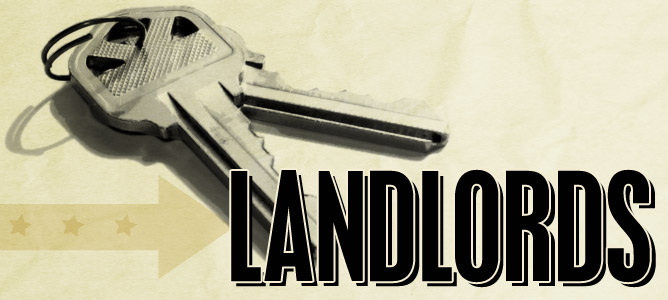How to be a Good Landlord
Becoming a good landlord requires a lot of commitment and clear communication. With so many landlords obtaining a bad reputation these days, it is important to make sure you are choosing the right tenants and keeping those tenants happy. The following tips will help you to avoid that unjust bad reputation and guide you into becoming an excellent landlord.
Keeping your tenants happy
- Investing in your property
- Good communication
We’ve all heard those awful landlord related horror stories where the plumbing is a shambles and the walls are so thick with mould it feels like the house might fall down at any moment. Investing the time, money and energy into your properties will be beneficial to you in the long term.
If you can cover the costs, some good quality DIY will go a long way in keeping your tenants happy. If you have the time and skills to do so yourself, great. If you need to seek professional help it would be advisable to get to know the local plumbers in case of any urgent fixes. For all properties its ideal to keep up regular maintenance no matter how much you are charging per month.

The better the landlord, the happier the tenant right? Including a bottle of bubbly on move-in day is a plus but think about the overall life-cycle of the tenancy. Who is your target audience? Are you letting out to students, professionals or families? It’s important to keep up a decent relationship with your tenants and to get to know them so that you can tailor the property to their needs. Good communication is key to becoming a good landlord. Dependant on the type of tenant, you might have differing landlord approaches or properties.
A recent BBC programme ‘The Week The Landlords Move In’ documents the lives of landlords who have to spend a week living in one of their own rentals. Under great scrutiny, the show puts these millionaire landlords to the test to see how well they know their tenants, and how much they are really working hard as landlords. Ben for example, makes a fortune by renting out many properties in Egham to students. A great way to make a large profit quickly from poor students who have no choice in the amount of rent they have to pay; but sadly the programme highlights how this landlord has lost touch with this tenants, leaving it up to an agency to sort out anything that goes wrong with the property.
The boom in a number of students privately renting at rocketing prices has lead to landlords taking advantage and not putting their share of the work in.
This lack of communication can have huge implications on health and safety, which could lead to tenants not paying their rent or seeking legal action. Even if you use a letting agent to deal with your properties, it will be worth your while keeping in regular contact with individuals to avoid nasty relationships developing and costly repairs. Make yourself easily contactable and always give at least 24 hours notice before visiting the property.
Understanding your legal requirements
- Health and Safety Requirements
- Screening your tenants
- Insurance
Whether you are new to the landlord or a professional understanding your legal responsibilities are essential to making you a good landlord. Health and safety should be a number one priority, make sure you are following government guidelines for private renting to ensure you are meeting safety regulations for gas, electric and fire hazards. Ensure you have provided an Energy Performance Certificate which should contain information about the property’s energy use and costs. Understand tenancy agreements and check you are abiding by landlord-tenant laws. Its common practice to seek legal advice and ask a solicitor to draw up the tenancy agreement.
Screening your tenants properly before approving a rental agreement is key to your success as a landlord. Run a credit history check and ensure they have provided evidence of income as well as a guarantor reference, such as a previous landlord. Be sure to check that your tenants have the right to rent in the UK by gathering important documents and identification. Even if you are using a letting agent it would be wise to meet with the individuals face-to-face to develop a relationship with them.
Insuring the property is your responsibility, you can tailor a policy to suit your needs. Residential Landlords Insurance should typically cover you for: buildings insurance, contents cover, loss of rent, public liability and employer’s liability. If the property is furnished, draw up a detailed inventory of the contents. You need to provide proof of the items included in the tenancy agreement, as well as documenting the condition of each room. Sit the individuals down and talk them through the agreement in detail to make sure they understand everything. If both parties are in agreement before the tenancy it will help to avoid disputes in the future, or at the end of the tenancy.
